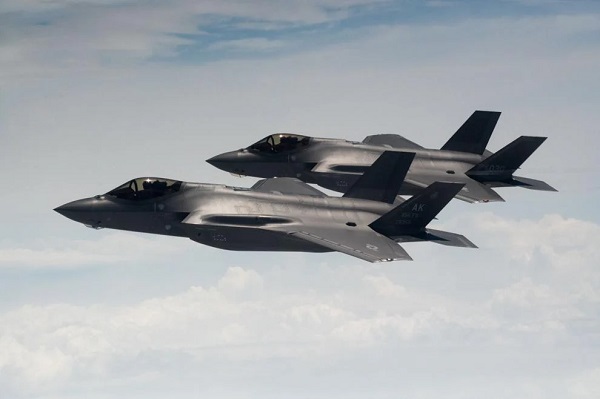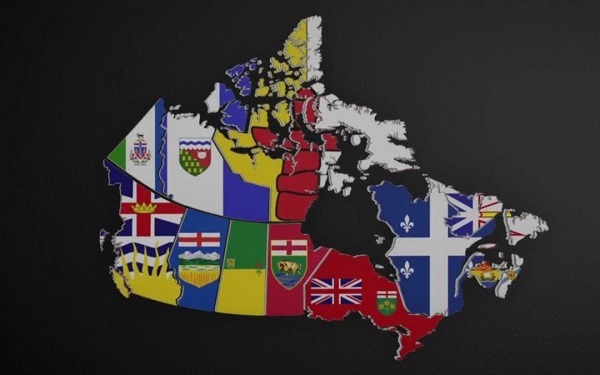By now it’s established that Ontario Premier Doug Ford is either an ever so dreamy “elbows up” super hero kinda guy who’s shown US President Donald Trump who his daddy is or …. a ham fisted, narcissistic blowhard with all the finesse of a drunken linebacker crashing through the Royal Doulton.
If you follow social media, those appear to be the options. You choose.
The Rewrite needs your support to hold journalism accountable.
Please become a free or paid subscriber.
His $75 million ad buy attempting to show Americans how Trump is offside on tariffs with the late Republican icon President Ronald Reagan (1981-89) was either, as Ford insists, a triumph, or a disaster of epic proportions. Either way, the result is the Americans broke off trade talks until, well, whenever a very aggrieved Trump next wakes up on the right side of the bed. And the progressive bromance between Ford and Prime Minister Mark Carney looks to be on the rocks, with the latter admitting he apologized to Trump and had advised against the ads. Me? I thought Matt Gurney summarized the situation very well in the Toronto Star.
“The Americans are more than savvy enough to have figured out what we’re up to. They’ve responded to our good cop/bad cop strategy by shooting both cops and then torching the police station.”
The Rewrite, though, is about media, not tugging forelocks and authoring political thumb suckers. So what really made me curious about Ford’s ad spend was whether the premier’s media friends in Ontario were going to get their – what’s that phrase again? – oh, right: fair share.
People may have forgotten but it was only last year when Ford, succumbing to News Media Canada’s lobbying, decided that too much government advertising money was going to American tech companies like Meta and Google and not enough to people who report about him and his opponents. Consistent with the progressive belief that government subsidies can cure any problem, Ford ordered that 25 per cent of the $100 million spent on advertising annually by the Liquor Control Board of Ontario (LCBO), the Ontario Cannabis Store, Metrolinx and the Ontario Lottery and Gaming Corporation (OLG) be directed to Ontario newspapers. And he didn’t stop there. The directive news release made it clear that “the government is also making similar commitments with its own advertising spending, helping to provide even more support for Ontario jobs and promote Ontario culture.”
Word on the street is that this cashapalooza – announced mere months before an election- has been warmly received by Ontario media, so I was already trying to find out who was getting how much when the US ads launched.
Turns out what should have been a simple task is not so easy. The specifics are not to be found within Ontario’s public accounts. So I wrote to Grace Lee, the director of communications in the Premier’s office and then Hannah Jensen, who also works there. No response. Then I tried again. Still nothing. When I asked if the directive “also applies to the Government of Ontario’s recent advertising buy in the United States so that additional government advertising – as is indicated in the directive – worth 25 per cent of the US spend will benefit qualified Ontario media” I got the same cold shoulder.
So, while there was a bit of publicity regarding Ford’s initial decision to subsidize Ontario publishers to the tune of $25 million-plus, no one is providing the details. The publishers must know and the government must know, but they seem to be keeping it a secret. It doesn’t seem likely, but if Ford is faithful to the words and spirit of his 2024 directive, there should be some additional cash flowing to approved Ontario publishers as a result of his Trump tantrum-inducing investment.
Alas, it appears unlikely the public will ever know if that’s the case or which media outlets are benefiting from the premier’s benefaction. That makes these arrangements look all too grubby. Keeping them in the dark, where they’ll stay because that’s the way the politicians and the publishers like it, is only going to further diminish public trust in media. But it’s unclear most of them care anymore.
A phrase in a Juno News report caught my eye last week and it should serve as a cautionary tale. In its report on a large Alberta Independence rally in Edmonton, separatism-friendly lawyer Jeffrey Rath was, understandably, a key source. But he was loosely quoted when referring to a competing Pro-Canada petition on the question of separation. Juno reported that “Rath said Saturday that he heard (organizer Thomas) Lukaszuk was 50,000 signatures short, with a Tuesday deadline.”
The issue isn’t whether Rath said that or not – it’s whether what “he heard” was based on anything other than wishful thinking and rumour-planting. Reporters should not pass along that form of information without verifying because, as it turned out, Rath wasn’t even close. Needing 294,000 signatures, the Pro-Canada petition collected 456,000 or at least 200,000 more than what Juno’s source, Rath, “heard.”
Fine if Rath wants to make a fool of himself. Reporters should be careful not to share the distinction.
A more established title than Juno was in a shambles last week when the venerable Times of London had to quickly pull a story in which former New York Mayor Bill de Blasio was quoted criticizing Democrat mayoralty candidate Zohran Mamdani.
What went wrong? The Times reporter believed he had reached out to de Blasio via email and got a response that questioned Mamdani’s economic plan. The New York Post, also owned by Rupert Murdoch, jumped all over it but when the real former mayor de Blasio responded on X that the report was bogus, The Times stepped back quickly, issuing a statement that it had “apologised to Bill de Blasio and removed the article immediately after discovering that our reporter had been misled by an individual falsely claiming to be the former New York mayor.”
In an interesting twist, the international publication Semafor reported that it had “reached out to a Gmail address our sources believed to be the one used by The Times.”
And:
“You are correct. It was me. The real Bill DeBlasio,” the person who controls the email address responded.
As it turns out, just as there’s more than one Peter Menzies in this world, there’s not just one Bill de Blasio and The Times’ assertion that someone was impersonating the former mayor quickly proved contentious.
The guy who responded to the email turned out to be a 59-year-old Long Island wine importer named Bill DeBlasio.
“I’m Bill DeBlasio. I’ve always been Bill DeBlasio,” DeBlasio (not de Blasio) told Semafor after it knocked on his door. “I never once said I was the mayor. He never addressed me as the mayor.
“So I just gave him my opinion.”
The moral of this story for journos? As the old Chicago City desk saying goes, always “check it out – if your mother says she loves you, check it out.”
In the meantime, we await The Times’ apology to DeBlasio – the one with the wine.
Donate
(Peter Menzies is a commentator and consultant on media, Macdonald-Laurier Institute Senior Fellow, a past publisher of the Calgary Herald, a former vice chair of the CRTC and a National Newspaper Award winner.)






















